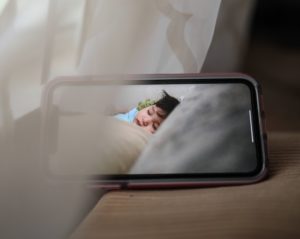 A bill in Georgia that would permit residents in assisted living communities and personal care homes to install electronic monitoring equipment in their rooms has been met with resistance. There are some members of the long-term care industry the oppose HB 849, so-called “granny cam” legislation due to privacy issues. The legislation—which also covers nursing homes—was introduced by state representative Demetrius Douglas (D-Stockbridge). Douglas contends that the technology is needed now more than ever.
A bill in Georgia that would permit residents in assisted living communities and personal care homes to install electronic monitoring equipment in their rooms has been met with resistance. There are some members of the long-term care industry the oppose HB 849, so-called “granny cam” legislation due to privacy issues. The legislation—which also covers nursing homes—was introduced by state representative Demetrius Douglas (D-Stockbridge). Douglas contends that the technology is needed now more than ever.
Several states have similar laws.
McKnight’s Senior Living’s recent article entitled “Georgia Legislature blocks ‘granny cam’ legislation; industry reps raised concerns” reports that Tony Marshall, president and CEO of the Georgia Health Care Association, says he previously spoke with Douglas and other legislators about the granny cam bill and his concerns. He said concerns were also shared by the state ombudsman and various advocacy groups.
“Surveillance cameras observe — they do not protect — and the use of such cameras in a healthcare setting significantly increases the risk of violating HIPAA [Health Insurance Portability and Accountability Act], federal and state privacy regulations,” Marshall told McKnight’s Senior Living. “We also have concerns related to several other technical aspects of the bill.”
Marshall also noted that the Georgia Health Care Association supports “transparency and measures to ensure that the highest quality of care is being provided to elderly Georgians,” while also “valuing a home-like setting and honoring each resident’s dignity and right to privacy.”
He said his association believes that true quality improvement happens by collaborative efforts with legislators and other players to bolster the ability of nursing centers to recruit and retain a skilled, competent workforce. This also will “further programs designed to educate healthcare professionals, consumers and communities-at-large on abuse prevention and identification,” Marshall said.
The bill allows electronic monitoring equipment to be put in a resident’s rooms in assisted living communities, personal care homes, skilled nursing facilities and intermediate care homes. The resident would be required to provide written consent from any roommate and notify the facility before installing a device. A sign must also to be posted to let visitors and staff members know about the granny cam. The facility also wouldn’t be permitted to access any video or audio recording from the resident’s device.
Douglas said the pandemic has shown the need for cameras and noted that other states have adopted similar measures, according to the Atlanta Journal-Constitution. The state legislator remarked that he introduced the legislation after being contacted during the lockdown by family members, who said they weren’t told about outbreaks or immediately told when an elderly family member died.
There are six states—Minnesota, Missouri, North Dakota, Oklahoma, South Dakota, Texas, and Utah—that have laws requiring assisted living communities to accommodate resident requests to install electronic monitoring equipment in their rooms.
New Jersey also has a “Safe Care Cam” program that loans such equipment to healthcare consumers, including families of assisted living and nursing home residents.
Reference: McKnight’s Senior Living (Sep. 15, 2020) “Georgia Legislature blocks ‘granny cam’ legislation; industry reps raised concerns”

